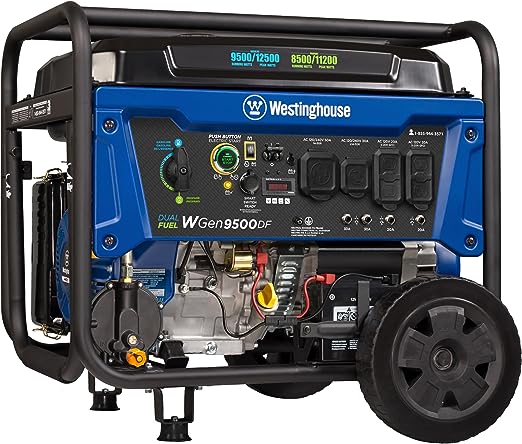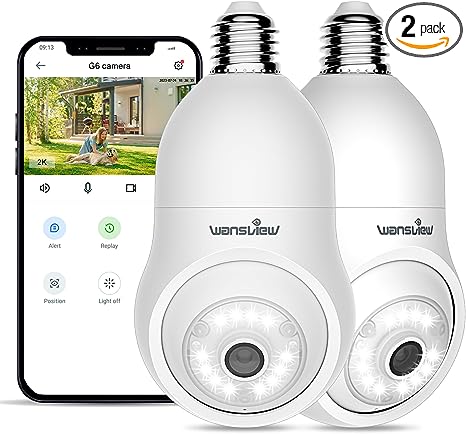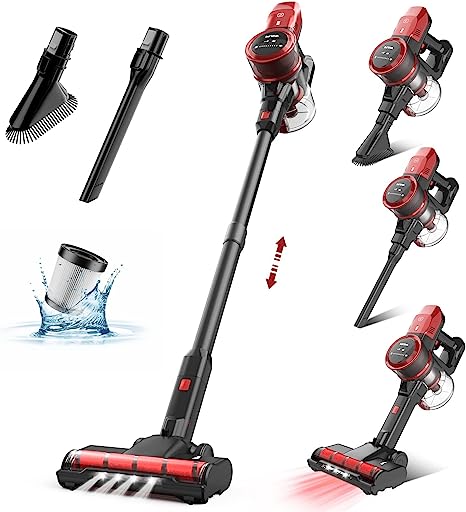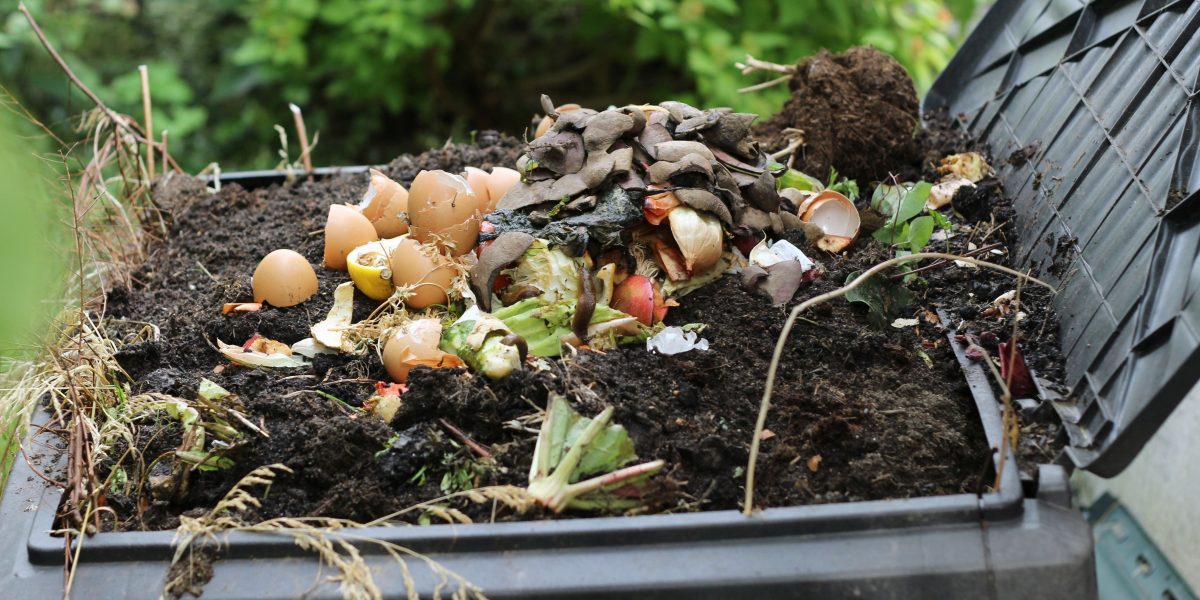Composting is remarkably rewarding and earth-friendly – Plus your plants will thank you!
A compost bin tucked into the corner of your landscape embraces sustainable gardening practices. You can use the natural process of composting to nurture your garden with nutrient-rich, all-natural humus. Say ‘no’ to harmful fertilizers and chemicals. Instead, indulge in Mother Nature’s natural composting mechanisms for all your gardening nutrient needs. In this article, we will look at the basics of composting for beginners.
How to Start Composting
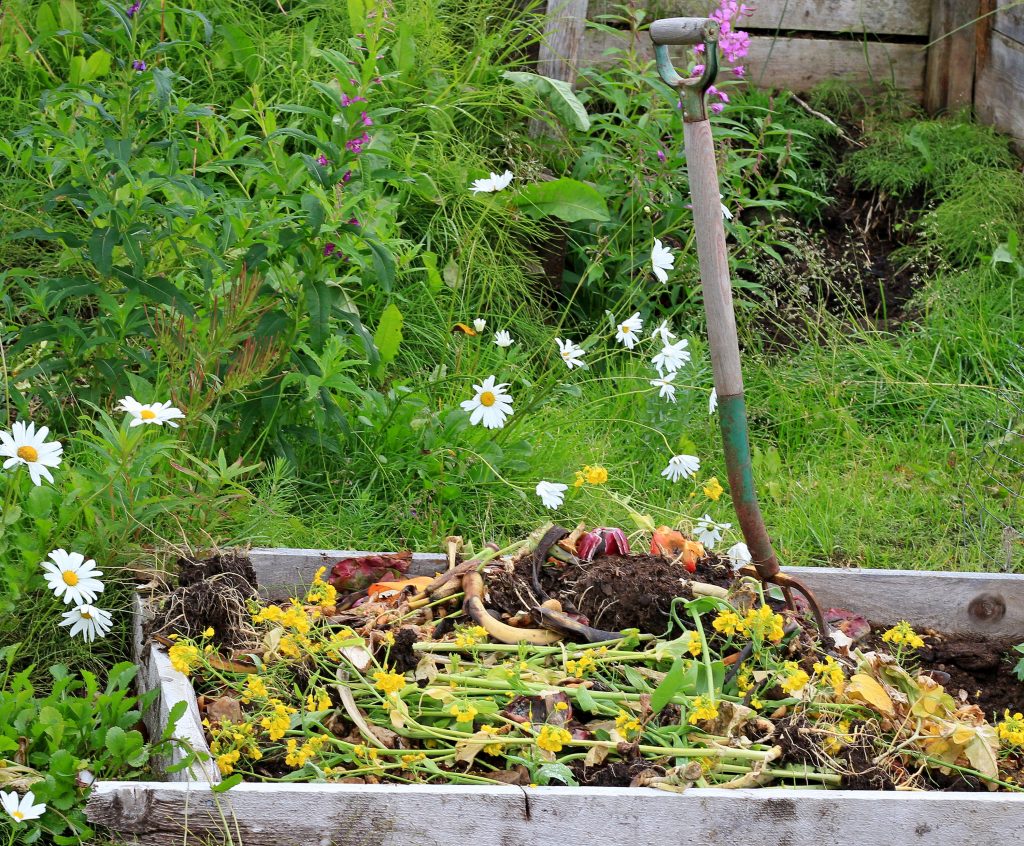
Composting is a natural way to green up your garden and enjoy a more bountiful harvest. You’ll also benefit from knowing that you are doing your part to reduce waste that is clogging up landfills. Let’s learn how to start composting!
1 Compost Bin
You have a couple of options when it comes to a compost bin. You can follow the practice of gardeners and farmers for centuries and simply have a compost pile in the corner of your backyard, but they can get smelly and attract vermin. Instead, you should invest in a commercial compost bin that effectively controls odors and prevents pests from infiltrating the fermenting compost. There is a wide array of designs. Some compost bins are made from plastic and others wood. Many are fashioned like a tumbler so that you can turn the compost regularly. Others are also set up to prompt worm vermicomposting.
2. Making Actual Compost
You don’t have to be a science major to figure out how to create compost. Typical compost is a mixture of garden and household waste. You’ll use things like vegetable peels, coffee grounds, eggshells, cotton clothing, paper bags, paper towel rolls, grass clippings, old fruits, hay, leaves, tea leaves, and more. Green waste is filled with nitrogen, and brown waste is made up of carbon. The two works together to formulate a very rich formula that will truly nourish your plants.
The process of making compost involves a layering technique. Most composters lay a layer of woody garden refuse to the bottom of the compost heap to promote ample airflow so the fermentation process can begin. They will then lay down a layer of green material and a layer of brown. Compost piles must also be churned either via a pitchfork or tumbler bin system at least once every week or two.
When making garden compost, do not add cooked food scraps to the bin, or you will attract mice, rats, and other vermin.
Watering the Compost
You’ll need to add water to the compost mixture to encourage the compost fermentation process. Water helps activate the beneficial microbes, so they start to break down the ingredients and things start to decompose rapidly. You’ll need to keep the compost moist but not overly damp. With a commercial compost bin, the build-on lid helps your compost effectively retain water. Placing a lid on the compost will also help accelerate.
Air Flow for Composting
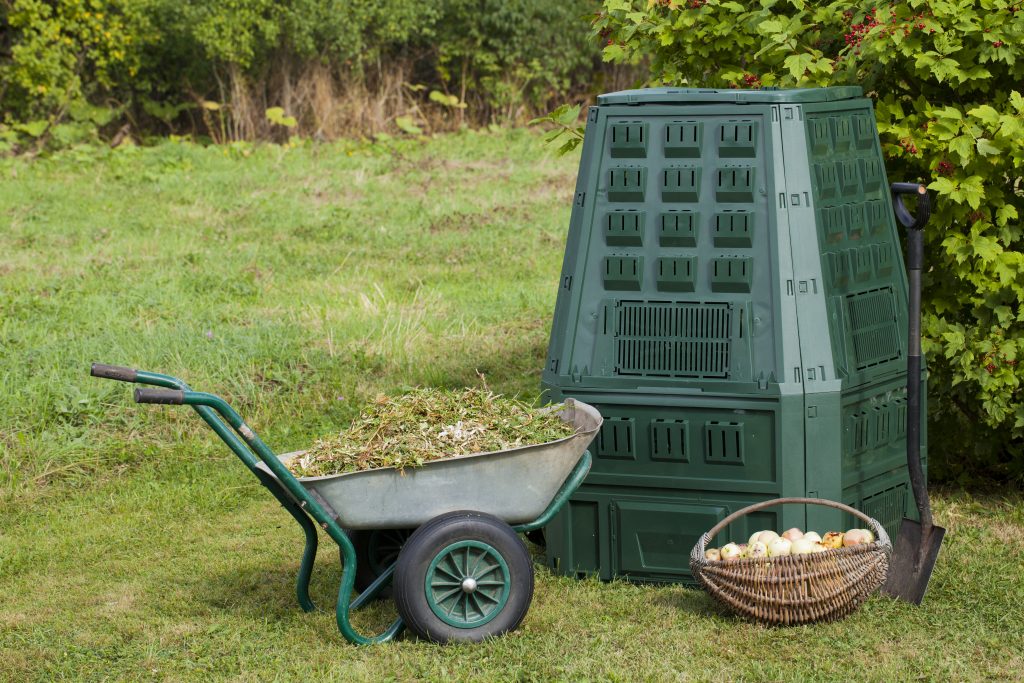
Compost requires air to start the breakdown process. With commercial compost, you can use a handle tumbler system to turn the bin and promote airflow. If you have a compost pile and no bin, then you’ll need to turn the compost with a pitchfork or shovel. If compost does not receive adequate airflow, it turns slimy, which you do not want to happen to your compost.
Why Compost?
Of course, sustainability is the number one reason given for composting, but you should maintain a compost pile for your garden.
With commercial fertilizers widely available at garden centers, many people wonder why they should try composting. The reasons are simple.
- Sustainable: Composting is sustainable and helps promote better earth.
- Fun: The process of composting is fascinating for young and old alike. The entire family can enjoy the act of composting.
- Easy: Composting for beginners isn’t tricky. You can easily create rich and organic compost for your garden with minimal effort. Nature indeed handles most of the aspects of composting, so all you must do is sit back reap the benefits.
- Trash Reduction: Around the world, landfills are filling up. It’s time to consider reducing household waste by composting.
- Satisfaction: Composting brings about a great sense of satisfaction for many people. You can feel like you have genuinely done your part to ensure a bountiful harvest and lush garden. Most gardeners take great pride in a job well done when their plants flourish.
Supplies Needed to Compost
As mentioned, you’ll want to invest in a commercial composter, but you can use a rubber tub or kitchen pail. You can even create a compost pile in the back area of your yard. Compost bins are nothing fancy but highly functional.
What About Worm Composting
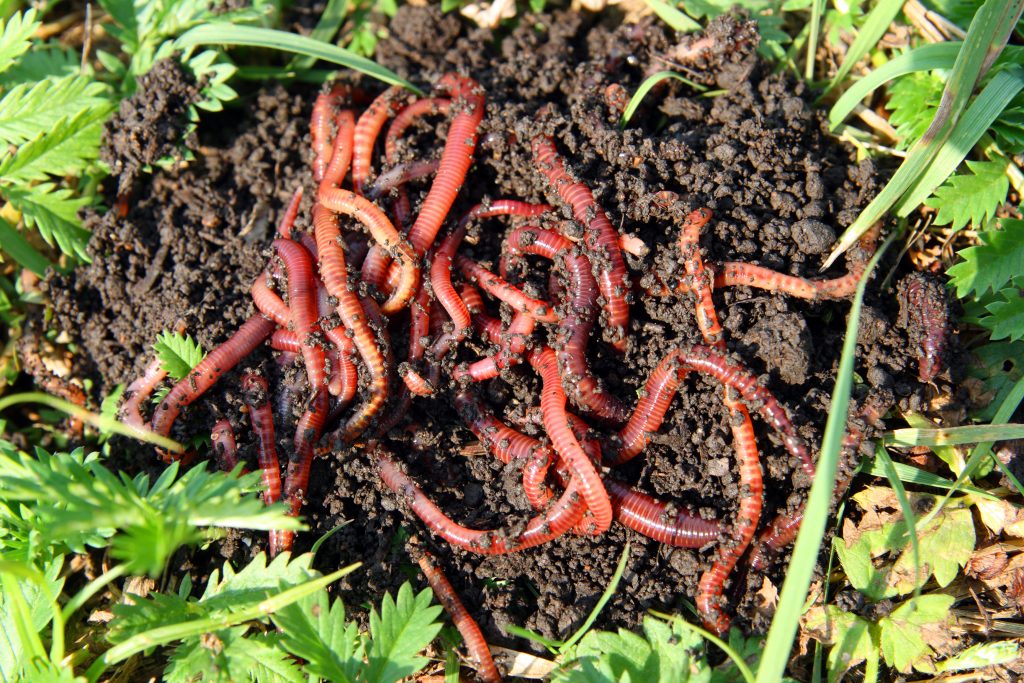
Worm composting is a traditional way to make genuinely nutritious compost for the garden. You can use simple earthworms or red wigglers to accelerate compost fermentation. Invest in a worm composter. You’ll place organic material and kitchen scraps into the worm composter. The works feed on organic material. It will pass through the worm’s digest track, and worm excrement is rich and loaded with nutrients. In addition, the worms burrow through the compost creating natural aeration to speed up the composting fermentation.
Composting Tumbler
One of the best designs for a composter is a tumbler. A commercial tumbler has a handle that you use to crank and turn the tumbler to mix your compost. The tumbler provides natural aeration to the compost. Some composting tumblers are mounted on wheels so you can wheel them around the garden, open the composter and dump the compost directly where you need it in the garden. Another nice perk about the composting tumbler is that it is designed to keep vermin and pests out of your compost! You never have to worry about the compost becoming smelly or invaded with unwanted creatures.
What Can You Compost?
When learning to compost for beginners, you are probably wondering exactly what you can compost.
Honestly, there are a lot of things you can compost, such as the following:
- Lawn clippings
- Paper
- Vegetables
- Fruits
- The skin of vegetables and fruits.
- Sawdust
- Cotton clothing items
- Wood ash
- Sawdust
- Teabags
- Coffee grounds
- Leaves
Do not compost:
- Bones
- Meat Cooked foods
- Weeds
- Diseased plant material
- Anything treated with chemical fertilizers or pesticides
Common Composting Problems
Sometimes, you might run into composting problems. However, most issues are easily remedied.
- Odor: Natural decomposition in a compost pile does not smell. Some people enjoy the aroma. It is earth. If your compost smile starts to smell soar or distasteful, then an imbalance has occurred. You should add leaves or grass clippings to correct the smell. Also, never try to compost cooked foods or meats, which will become very pungent.
- Pests: Yes, vermin are a problem when composting. They just can’t seem to resist the compost. Raccoons, mice, and other creatures often like to dig through compost if they can gain access to your bin.
- Fire: Compost piles can get especially hot and become a fire danger. You must regularly moisten the compost and turn it to create aeration and reduce the buildup of heat.
How Long Does Composting Take?
The length of time it takes to compost depends on the organic materials you use. Food scraps decompose faster than sticks or twigs. Teabags and paper take the longest to compose. Remember, the bottom of the bin composts first, so always turn the pile at least once a month to keep the process going smoothly.
Composting for beginners is remarkably rewarding, and your garden will thank you with vigorous growth. You can stop using harmful fertilizers and instead create earth-friendly compost to meet all your plant’s nutritional needs.

